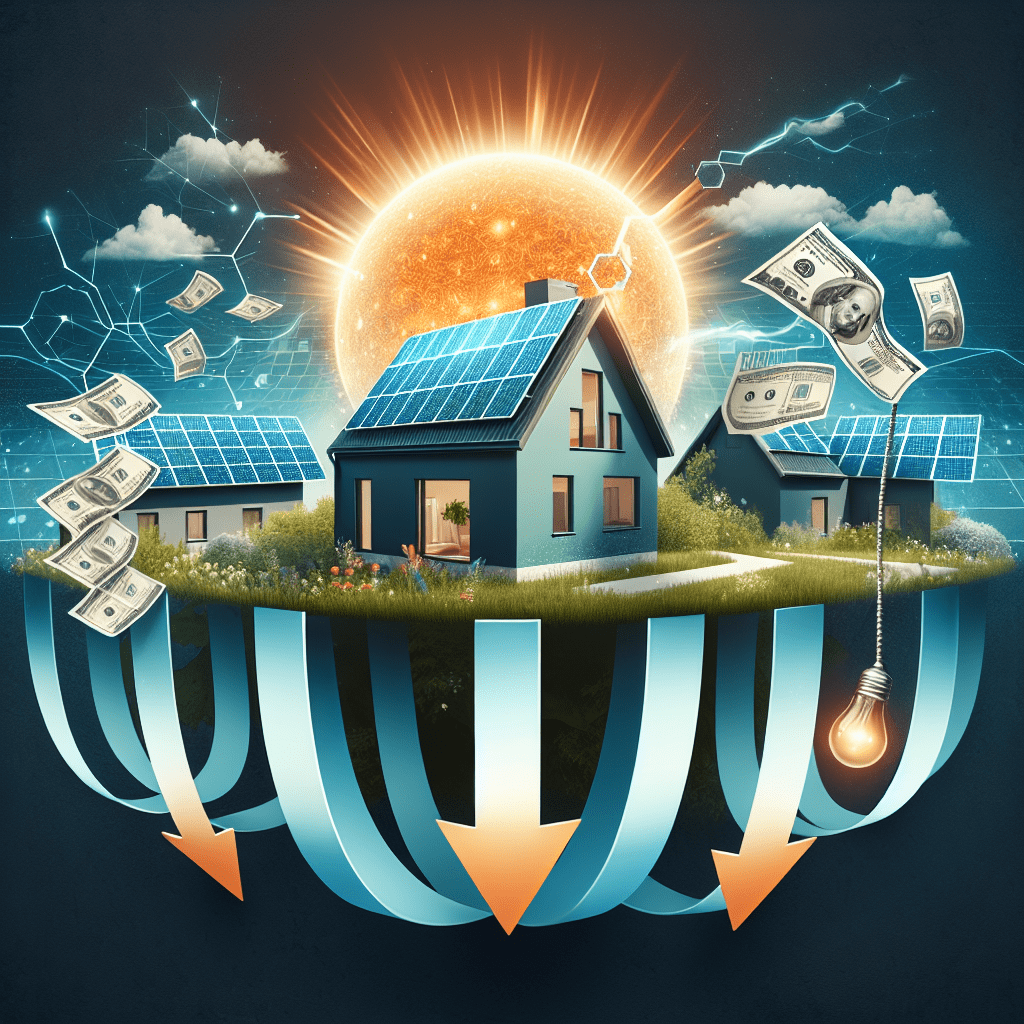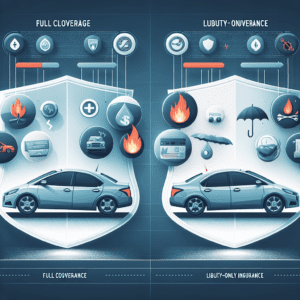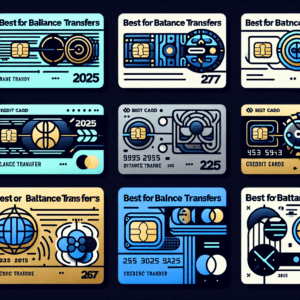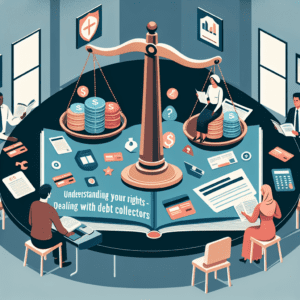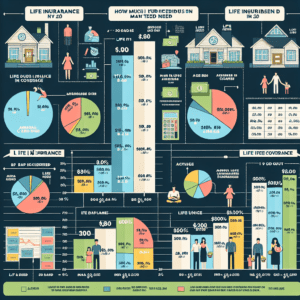“Boost Home Value, Cut Costs, Go Green – Solar Is a Win-Win-Win!”
Increase Home Value with Solar: How Renewable Energy Boosts Property Prices
As homeowners seek ways to enhance their property’s value while reducing expenses and embracing sustainable living, solar energy has emerged as a compelling solution. Installing solar panels not only provides long-term financial benefits but also increases the overall market value of a home. With growing awareness of environmental concerns and rising energy costs, buyers are increasingly prioritizing energy-efficient homes, making solar power a valuable investment for property owners.
One of the primary reasons solar energy boosts home value is the potential for significant energy cost savings. Homes equipped with solar panels generate their own electricity, reducing reliance on traditional utility providers. As a result, homeowners experience lower monthly energy bills, which can be particularly appealing to prospective buyers. The ability to produce renewable energy on-site ensures long-term savings, making a solar-powered home a more attractive option in the real estate market. Additionally, as electricity prices continue to rise, homes with solar installations become even more desirable, offering future owners protection against fluctuating energy costs.
Beyond financial savings, government incentives and tax credits further enhance the appeal of solar-powered homes. Many federal, state, and local programs offer financial incentives to encourage the adoption of renewable energy. These incentives can significantly offset the initial installation costs, making solar energy more accessible to homeowners. Buyers recognize the long-term benefits of these incentives, as they may still be eligible for certain tax credits or rebates when purchasing a home with an existing solar system. This added financial advantage makes solar-equipped properties stand out in a competitive housing market.
Moreover, studies have consistently shown that homes with solar panels sell at higher prices compared to those without. Research conducted by organizations such as the U.S. Department of Energy’s Lawrence Berkeley National Laboratory has found that solar-powered homes command a premium in the real estate market. Buyers are willing to pay more for properties that offer energy efficiency and sustainability, recognizing the long-term cost savings and environmental benefits associated with solar energy. This increased demand translates into higher resale values, providing homeowners with a strong return on investment.
In addition to financial benefits, solar energy enhances a home’s overall appeal by aligning with modern sustainability trends. As environmental consciousness grows, more buyers are seeking eco-friendly homes that reduce carbon footprints. Solar panels contribute to a cleaner environment by generating electricity from a renewable source, reducing greenhouse gas emissions, and decreasing dependence on fossil fuels. This commitment to sustainability resonates with environmentally conscious buyers, making solar-powered homes more attractive in today’s market.
Furthermore, homes with solar installations often sell faster than those without. Buyers recognize the immediate benefits of moving into a home with an existing solar system, eliminating the need for installation and upfront costs. The convenience of purchasing a home that already generates renewable energy adds to its marketability, reducing the time a property spends on the market. This advantage is particularly beneficial in competitive real estate markets, where homes with solar panels can stand out among similar listings.
Ultimately, investing in solar energy is a strategic decision that enhances home value, reduces energy costs, and supports environmental sustainability. As demand for energy-efficient homes continues to rise, properties equipped with solar panels will remain highly desirable. By embracing renewable energy, homeowners not only secure financial benefits but also contribute to a cleaner, more sustainable future, making solar power a win-win-win solution for property owners and buyers alike.
Slash Your Energy Bills: The Long-Term Savings of Solar Power
Investing in solar power is one of the most effective ways to reduce energy costs while also contributing to a more sustainable future. As electricity prices continue to rise, homeowners are increasingly looking for ways to lower their monthly utility bills. Solar energy provides a long-term solution by harnessing the power of the sun to generate electricity, reducing dependence on traditional energy sources. By installing solar panels, homeowners can significantly cut their energy expenses, often seeing substantial savings within just a few years. Over time, these savings accumulate, making solar power a financially sound investment.
One of the primary reasons solar energy leads to lower utility bills is that it allows homeowners to generate their own electricity. Instead of relying solely on the grid, solar panels convert sunlight into usable energy, reducing the amount of electricity that must be purchased from a utility provider. In many cases, solar panel systems produce more electricity than a household consumes during daylight hours. This excess energy can be fed back into the grid through net metering programs, which allow homeowners to receive credits on their utility bills. As a result, many solar users experience dramatically reduced energy costs, with some even eliminating their electricity bills altogether.
Beyond immediate savings, solar power also provides long-term financial benefits by protecting homeowners from rising energy prices. Traditional electricity costs are subject to fluctuations due to factors such as fuel prices, supply and demand, and regulatory changes. By generating their own electricity, homeowners with solar panels are less affected by these price increases. This stability allows for better financial planning, as energy costs become more predictable over time. Additionally, solar panel systems have a long lifespan, often lasting 25 years or more with minimal maintenance. This means that once the initial investment is paid off, homeowners can continue to enjoy free or significantly reduced electricity costs for decades.
Another key financial advantage of solar power is the availability of incentives and rebates that help offset the initial installation costs. Many governments and local utilities offer tax credits, rebates, and other financial incentives to encourage the adoption of solar energy. These programs can significantly reduce the upfront expense, making solar power more accessible to a wider range of homeowners. Additionally, financing options such as solar loans and leasing programs provide flexible payment plans that allow homeowners to start saving on their energy bills immediately, even if they do not have the funds to purchase a system outright.
Furthermore, solar energy systems can increase the overall value of a home. Studies have shown that homes equipped with solar panels tend to sell faster and at higher prices than those without. Prospective buyers recognize the long-term savings associated with solar power and are often willing to pay a premium for a home that offers lower energy costs. This added value makes solar power not only a cost-saving measure but also a smart investment in the property itself.
Ultimately, the financial benefits of solar energy extend far beyond just reducing monthly utility bills. By generating their own electricity, homeowners can protect themselves from rising energy costs, take advantage of government incentives, and even increase the value of their homes. With these advantages in mind, it is clear that solar power is a practical and financially rewarding choice for those looking to achieve long-term savings while embracing clean, renewable energy.
Clean Energy for a Sustainable Future: Why Solar is the Smart Choice
Solar energy has emerged as one of the most effective solutions for homeowners seeking to reduce their environmental impact while also benefiting financially. As concerns about climate change and energy sustainability continue to grow, more individuals are turning to solar power as a reliable and responsible alternative to traditional energy sources. By harnessing the sun’s abundant energy, homeowners can generate clean electricity, lower their utility bills, and increase the value of their properties, making solar a truly advantageous investment.
One of the most compelling reasons to adopt solar energy is its role in promoting environmental sustainability. Unlike fossil fuels, which release harmful greenhouse gases into the atmosphere, solar power generates electricity without producing carbon emissions. This reduction in pollution helps combat climate change and improves air quality, contributing to a healthier planet for future generations. Additionally, solar energy reduces dependence on nonrenewable resources, ensuring a more stable and sustainable energy future. As the demand for electricity continues to rise, transitioning to renewable sources like solar can help mitigate the negative effects of traditional energy production.
Beyond its environmental benefits, solar power also offers significant financial advantages. One of the most immediate and noticeable benefits is the reduction in monthly electricity bills. By generating their own power, homeowners can decrease their reliance on the grid, leading to lower energy costs. In many cases, excess energy produced by solar panels can be fed back into the grid through net metering programs, allowing homeowners to earn credits on their utility bills. Over time, these savings can add up, making solar a cost-effective solution for long-term energy needs.
Furthermore, the financial incentives available for solar adoption make it an even more attractive option. Many governments and local authorities offer tax credits, rebates, and other incentives to encourage homeowners to invest in solar energy. These programs can significantly reduce the upfront costs of installation, making solar systems more accessible to a wider range of homeowners. Additionally, as technology advances and production costs decrease, solar panels have become more affordable and efficient, further enhancing their financial viability.
Another key advantage of solar energy is its positive impact on property value. Homes equipped with solar panels are often more attractive to potential buyers, as they offer the promise of lower energy costs and increased energy independence. Studies have shown that properties with solar installations tend to sell faster and at higher prices compared to those without. This added value makes solar not only a smart choice for current homeowners but also a strategic investment for those considering selling their property in the future.
Moreover, solar energy systems require minimal maintenance, making them a hassle-free option for homeowners. With no moving parts and durable construction, solar panels can last for decades with little upkeep. Most manufacturers offer warranties that extend 20 to 25 years, ensuring long-term reliability and performance. This durability, combined with the ongoing financial and environmental benefits, makes solar a practical and sustainable energy solution.
As the world moves toward a cleaner and more sustainable future, solar energy stands out as a smart and responsible choice. By reducing carbon emissions, lowering energy costs, and increasing property value, solar power offers a comprehensive solution that benefits both homeowners and the environment. With continued advancements in technology and increasing support from government incentives, the transition to solar energy is becoming more accessible than ever. Investing in solar is not just a step toward sustainability—it is a decision that provides lasting financial and environmental rewards.

